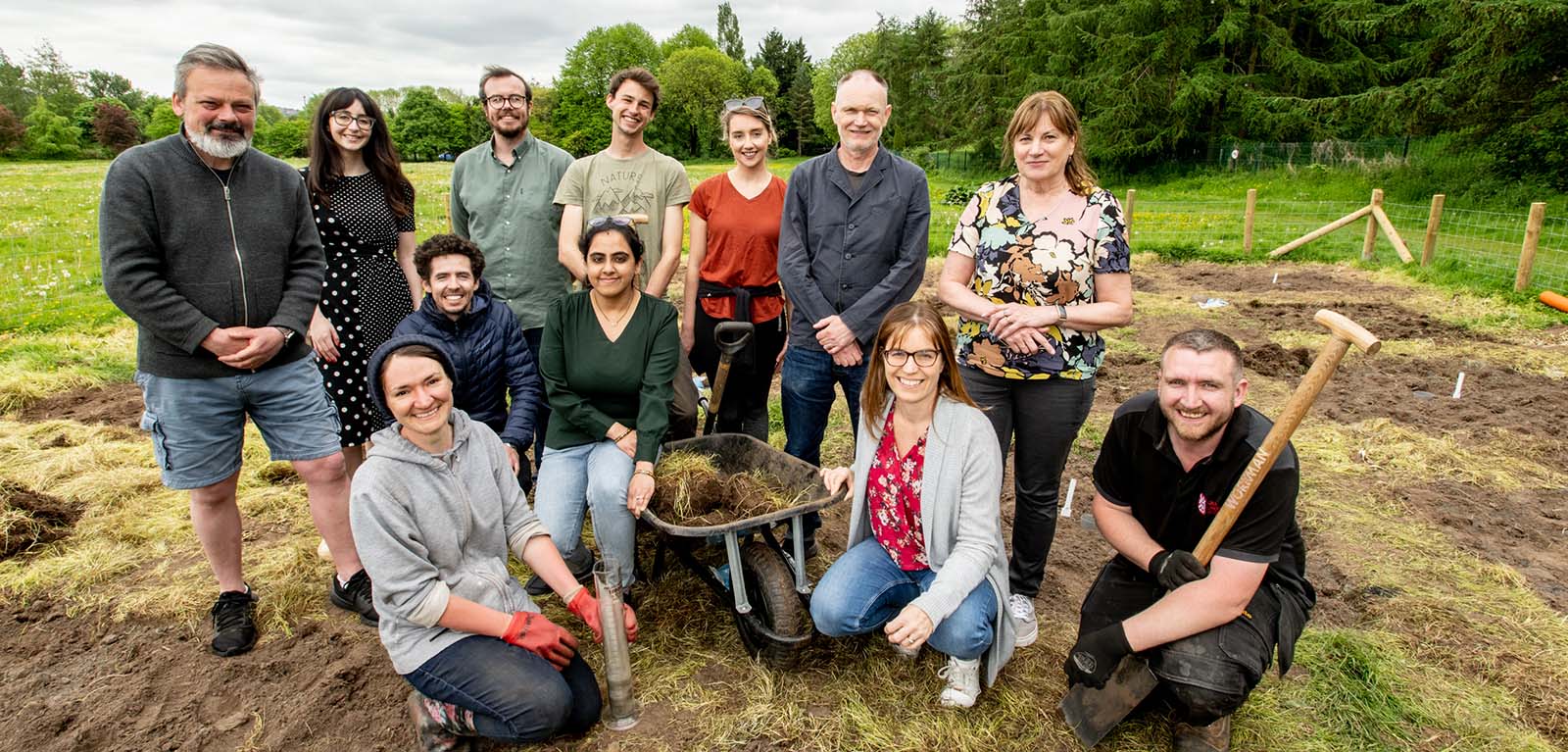Belfast research garden will help tackle pollution and prepare society for climate change
Queen’s University Belfast researchers have joined an international team of experts across five cities to create research gardens that will help tackle pollution, improve public health and help society to prepare for climate change.

The Horizon 2020 EU ‘UPSURGE’ project brings together a range of organisations, including Queen’s and Belfast City Council.
Researchers from five cities – Belfast, Breda, Budapest, Katowice and Manibor – will be sharing learning and good practice to help create and develop nature-based solutions to tackle pollution, citizen health and climate resilience.
In Belfast, Queen’s researchers have now taken the first exciting step of the project, along with Belfast City Council partners and local stakeholders from Friends of the Field.
They have been getting stuck in on the site, digging and preparing the research garden, which is based on Belfast City Council land in Lower Botanic Gardens, beside Queen’s University’s Physical Education Centre (PEC).
They will now be able to assess whether contaminated soil from the historical use of the site might negatively impact urban food production. They will also explore whether certain vegetables take up more harmful contaminants than others.
The site has also played host to collaborators from the University of Antwerp – they will be adding different mixes of biochar and basalt rock dust to soil to get a better understanding of how these impact on carbon sequestration and soil ecosystem services.
Queen’s University postgraduate student, Jennifer Newell, has been playing a key role in establishing the research garden. She says: “We are really excited to break ground on this plot and begin the first set of carbon-focused trials that will contribute towards the UPSURGE goal of developing effective nature-based solutions for cities.”
Arthur Vienne, Visiting PhD researcher from University of Antwerp, says: "Enhanced weathering for carbon sequestration has the potential to be a part of the puzzle against climate change. However, the potential risks of this technique must be quantified in long-term field studies. This collaboration between Antwerp and Queens University can deliver urgently needed valuable data."
Baseline data is now being gathered on biodiversity, air and soil quality. Local community group ‘Friends of the Field’ recently led a BioBlitz event on the site to record existing fauna and flora species.
Speaking about the project, co-founder and local resident Colin Shaw, says: “The UPSURGE project has already transformed how the local community sees and uses the site. Its future as a place for citizen action on biodiversity loss and sustainable urban farming is a vital step in a city-wide response to climate change.”
The second phase of the UPSURGE project in Lower Botanic Gardens will see a new community garden, beehives and planting installed and monitored for socio-environmental impacts.
Media
For media inquiries, please contact emma.gallagher@qub.ac.uk